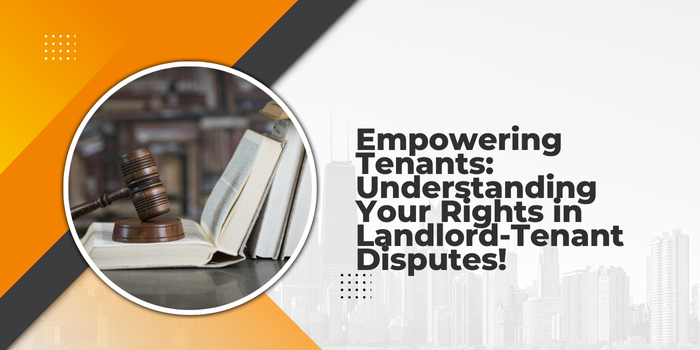Navigating a landlord-tenant dispute can be a stressful and challenging experience for tenants. Whether it’s issues with repairs, rent increases, or lease violations, understanding your rights as a tenant is crucial for resolving disputes and maintaining a healthy landlord-tenant relationship. In this guide, we’ll explore the rights of tenants when dealing with landlord-tenant disputes, empowering renters to advocate for themselves effectively and navigate the resolution process with confidence.
Right to Habitability:
One of the most fundamental rights of tenants is the right to a habitable living environment. Landlords are legally obligated to maintain rental properties in a safe and habitable condition, including ensuring adequate heating, plumbing, electricity, and structural integrity. If your rental unit fails to meet these standards, you have the right to request repairs and withhold rent until the issues are resolved.
Right to Quiet Enjoyment:
Tenants have the right to “quiet enjoyment” of their rental unit, which means they are entitled to live in peace and privacy without interference from the landlord. Landlords are prohibited from entering the rental unit without proper notice, except in emergencies or specific circumstances outlined in the lease agreement. If your landlord repeatedly violates your right to quiet enjoyment, you may have grounds for legal action.
Right to Non-Discrimination:
It is illegal for landlords to discriminate against tenants based on protected characteristics such as race, color, religion, national origin, sex, familial status, or disability. If you believe you have been discriminated against by your landlord, you can file a complaint with the appropriate housing agency or seek legal recourse through a civil rights lawsuit.
Right to Due Process:
Tenants have the right to due process in landlord-tenant disputes, which means landlords must follow specific legal procedures when initiating eviction proceedings or taking other adverse actions against tenants. Tenants have the right to receive proper notice of eviction, an opportunity to contest the eviction in court, and sufficient time to vacate the rental property.
Right to Security Deposit Protection:
In many jurisdictions, landlords are required to place tenants’ security deposits in a separate escrow account and provide a detailed written statement of deductions upon move-out. Tenants have the right to receive their security deposit back within a reasonable timeframe after vacating the rental unit, minus any legitimate deductions for damages beyond normal wear and tear.
Right to Lease Enforcement:
Tenants have the right to enforce the terms of their lease agreement, including provisions related to rent payments, lease duration, and property maintenance responsibilities. If your landlord violates the terms of the lease or fails to fulfill their obligations, you have the right to take legal action to enforce your rights and seek remedies such as rent reduction or lease termination.
Right to Fair Housing Practices:
Landlords must adhere to fair housing laws and regulations, which prohibit discrimination in housing based on protected characteristics. If you believe you have been discriminated against by your landlord, you can file a complaint with the U.S. Department of Housing and Urban Development (HUD) or a state or local fair housing agency.
Right to Legal Representation:
Tenants have the right to seek legal representation and assistance in landlord-tenant disputes. If you are facing eviction or other legal action from your landlord, consider consulting with a tenant rights attorney who can provide guidance, representation, and advocacy on your behalf.
Right to Retaliation Protection:
Landlords are prohibited from retaliating against tenants for exercising their legal rights, such as reporting code violations, withholding rent, or filing complaints against the landlord. If you believe you have been retaliated against by your landlord, you may have grounds for legal action, including seeking damages or injunctive relief.
Right to Privacy:
Tenants have the right to privacy in their rental unit, and landlords are generally required to provide reasonable notice before entering the premises for non-emergency purposes, such as repairs or inspections. If your landlord repeatedly violates your privacy rights, you may have grounds for legal action or lease termination.
Conclusion:
Understanding your rights as a tenant is essential for effectively addressing landlord-tenant disputes and advocating for fair treatment. By familiarizing yourself with your legal rights, seeking assistance from tenant advocacy organizations or legal professionals, and documenting any violations or issues with your landlord, you can protect your interests and ensure a positive rental experience. Remember that knowledge is power, and by empowering yourself with information about your rights, you can navigate landlord-tenant disputes with confidence and assertiveness.



